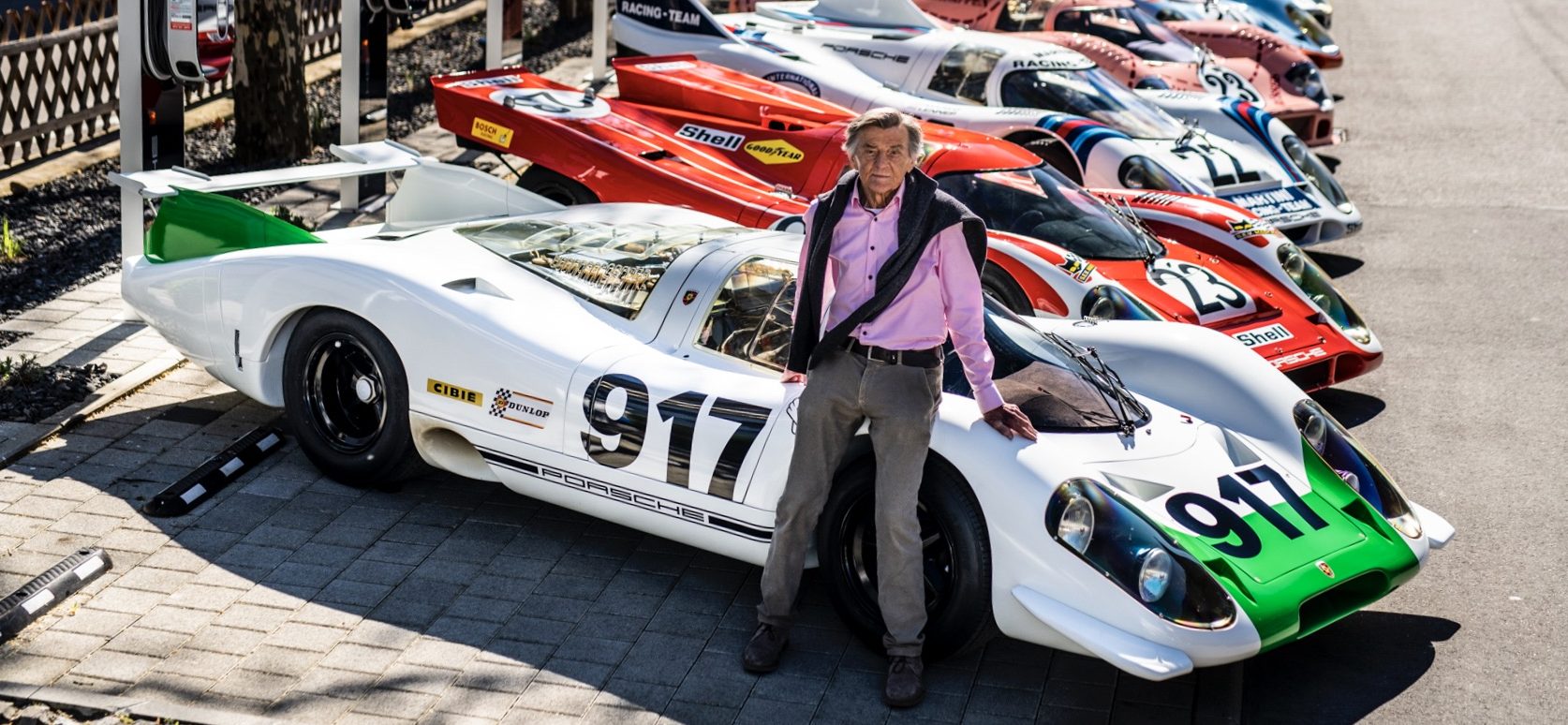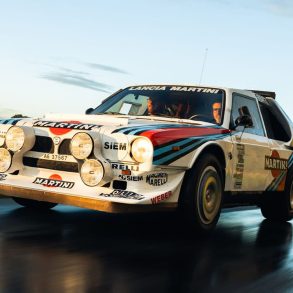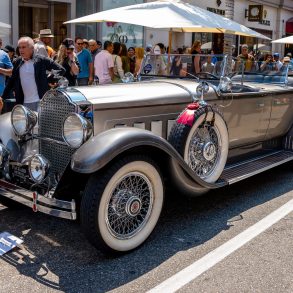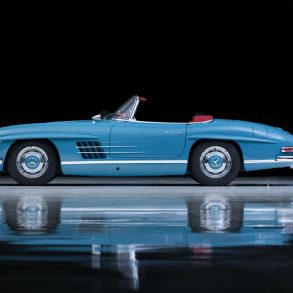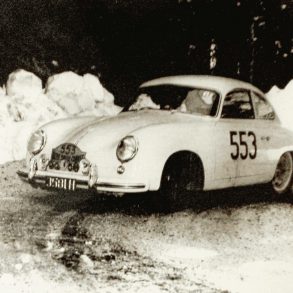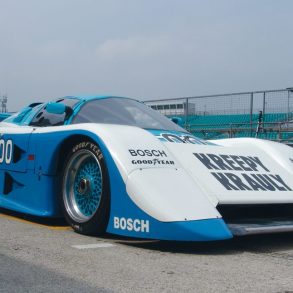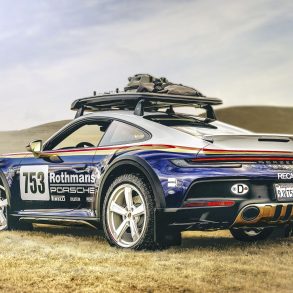Hans Mezger, famed engineer and father to the legendary Porsche 917 and boxer 6-cylinder engine, passed away on June 10, 2020, at the age of 90.
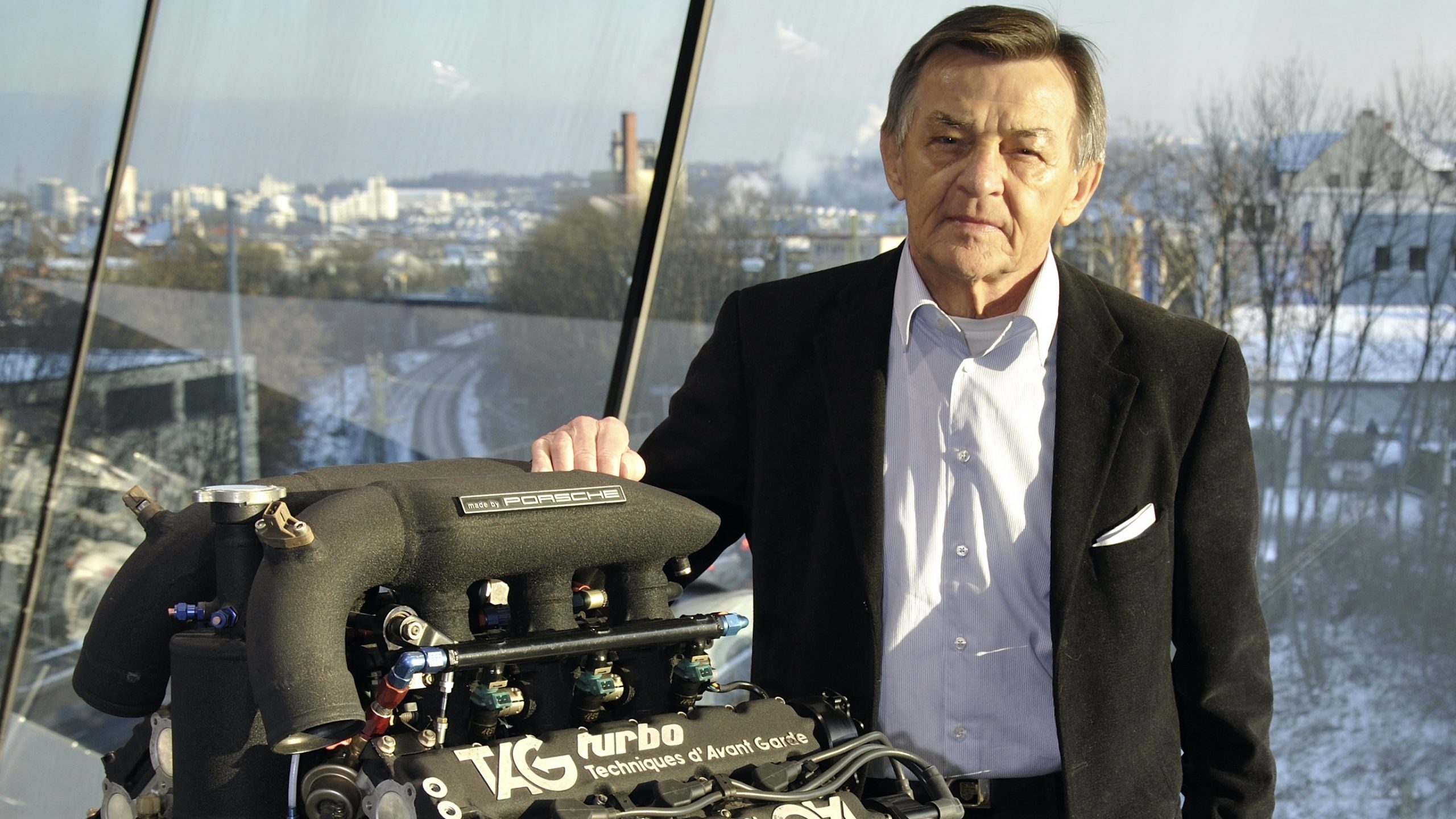
Porsche owes him not only the Porsche 911’s air-cooled, six-cylinder boxer engine but also the overall construction of the 917 and its 12-cylinder engine, as well as his creation of the TAG Turbo Formula One engine. For more than three decades, Hans Mezger was responsible for Porsche’s most successful racing cars and engines. “The news of his death represents a very sad loss for us. Our thoughts are with his family,” says Michael Steiner, Member of the Executive Board, Research and Development. “We thank Hans Mezger for his extraordinary engineering achievements, which he has done for motorsport in general and for Porsche in particular. His innovations for our series sports cars will remain unforgotten forever.”
Hans Mezger was born on November 18, 1929 in Ottmarsheim, a small village near Ludwigsburg on the outskirts of Stuttgart. The youngest of five children, his parents ran a country inn. Art and culture were very important to the Mezger household. From an early age, aeroplanes and flying also fascinated the young Hans, and he occasionally undertook a trip to Kirchheim/Teck with a group of gliding enthusiasts from his neighborhood.
Mezger continued his grammar school studies in Besigheim through the 6th grade, then followed by German A-levels in Ludwigsburg. “In 1946, I experienced my very first car race. It was at Hockenheim where old pre-war race cars lined up, along with Hans Stuck, whom I photographed with my old camera.”
Hans Mezger decided to study mechanical engineering at the Technical University, now the University of Stuttgart. However, at this time the universities were very crowded because the young men who had returned from the war were given preferential treatment for admission. Hans Mezger used the university requirement for a twelve-month internship to practise numerous stages such as machining, welding, model making and a few weeks in the grey cast iron and aluminium foundry. “At that time I was riding a motor scooter, an NSU Lambretta. Apart from my brother’s 250 cc DKW it was my first and last motorised two-wheeler. I rode the Lambretta until 1960, when I bought my first car, an old and quite worn-out 356. It was not until years later that I came into contact with motorised two-wheelers again, when in the late 1970s it became necessary to develop new motorcycle engines for Harley-Davidson.”
His career included designing the world-famous “Mezger engine” for the 901 and 911 in the early 1960s. In 1965 Mezger was promoted to head of the department for race car design initiated by Ferdinand Piëch. This department was the key to a new quality and dynamism in motorsport for Porsche. It was an exciting, fascinating time in the mid-1960s. “Sometimes we also worked around the clock – like in 1965 when we created the Ollon-Villars Bergspyder in just 24 days and shortly thereafter the 910.” With its construction of a tubular frame, fibreglass body and design for new Formula 1 tyre technology, it became the blueprint for all the race cars that were built in the years to follow.
Career and highlights at Porsche
1956–1960 Technical calculation department in the design department. Responsible for valve control of all engines, among other things.
1960–1962 Move to the Porsche Formula 1 project team. Collaboration in engine and chassis design.
1963 Design of the 901/911 engine. Responsible for design and further development of all racing engines.
1965 Design and project management of the Ollon-Villars Spyder. Management of the newly established department for race car design.
1966–1970 Design of the 910, 907, 908, 917, 2-litre four-cylinder engine for the 914 production sports car.
1971–1973 CanAm race cars 917/10 and 917/30 with turbocharging.
1974–1976 Design, development and further development of six-cylinder turbo engines and the Type 935 and 936 race cars.
1977–1978 Development of the water cooling and four-valve concept for the Type 935 and 936 six-cylinder turbo engines.
1977–1980 Design of the four-cylinder engine for Harley-Davidson. Development of the Indy engine based on the Type 935/936. Further development of the 935/936 race cars and engines.
1981–1982 Development of a 2.65-litre engine based on the 935/936 for Group C (956/962).
1981–1987 Design, overall project management and further development of the “TAG-Turbo – made by Porsche” Formula 1 engine.
1987–1988 Design of the Type 2708 Indy 2.65-litre engine.
1990 Design of the Type 3512 12-cylinder Formula 1 engine
Honours and awards
1974 The Starley Premium Award (GB) for the best automotive presentation of the year on the Porsche Type 917.
1984 Behind the Scenes Award (USA) for the development of the TAG Turbo Formula 1 engine.
1984 Trofeo Colin Chapman (I) for the development of the TAG Turbo Formula 1 engine.
1984 Prince Metternich Prize (D) for outstanding technical achievements in motorsport.
1984 Trophée de L’Exploit (F) for the development of the TAG Turbo Formula 1 engine.
1984 Caschi d’Oro (I) for winning the Formula 1 Constructors’ World Championship (presented to McLaren).
1985 Prof. Ferdinand-Porsche Award (A) of the technical university Vienna in recognition for the accomplishment of developing the combustion engine. Hans Mezger is still the only person from the Porsche company to have won this award.
1987 Médaille Spéciale (F) for the development of the TAG Turbo Formula 1 engine.


